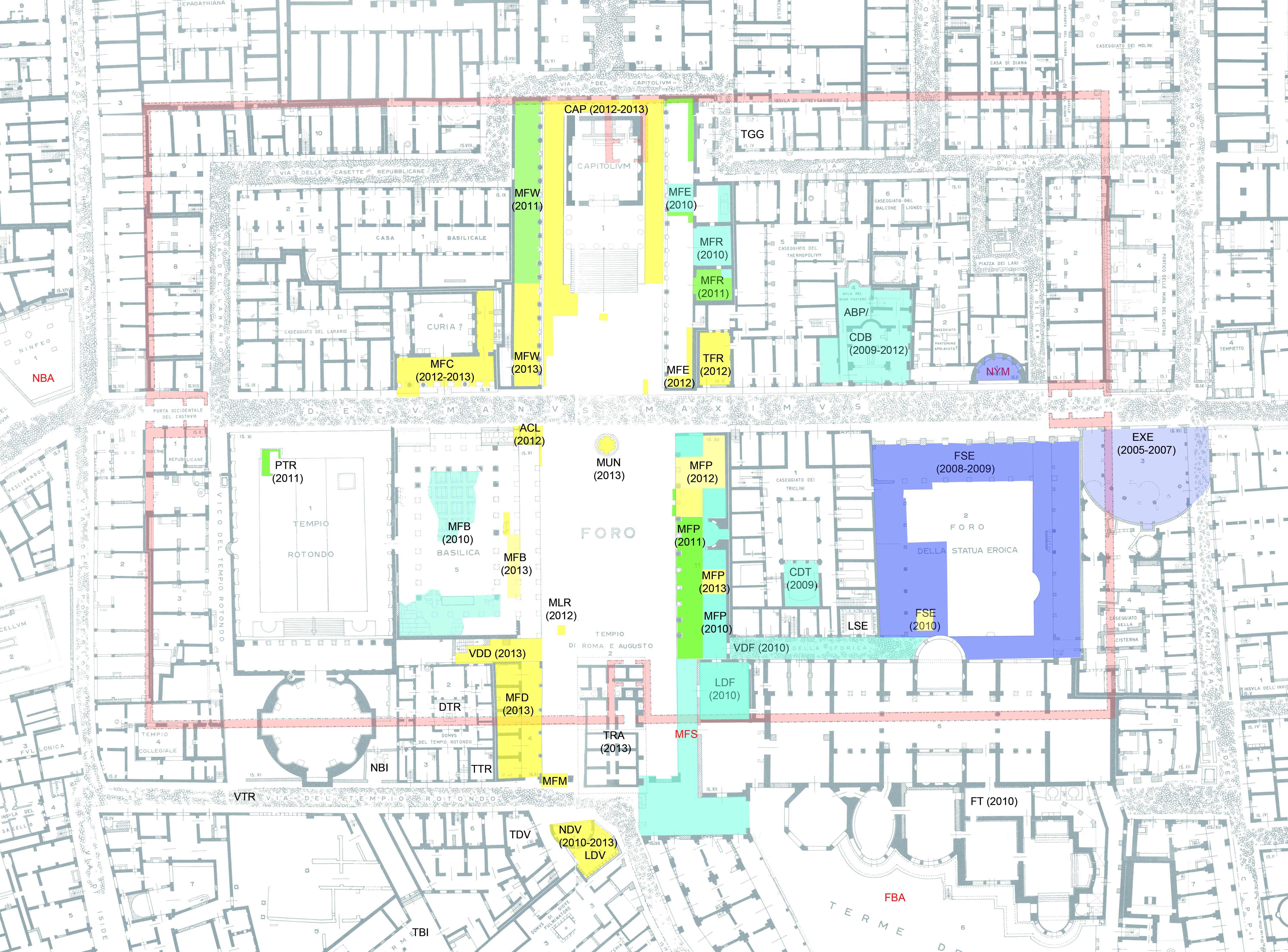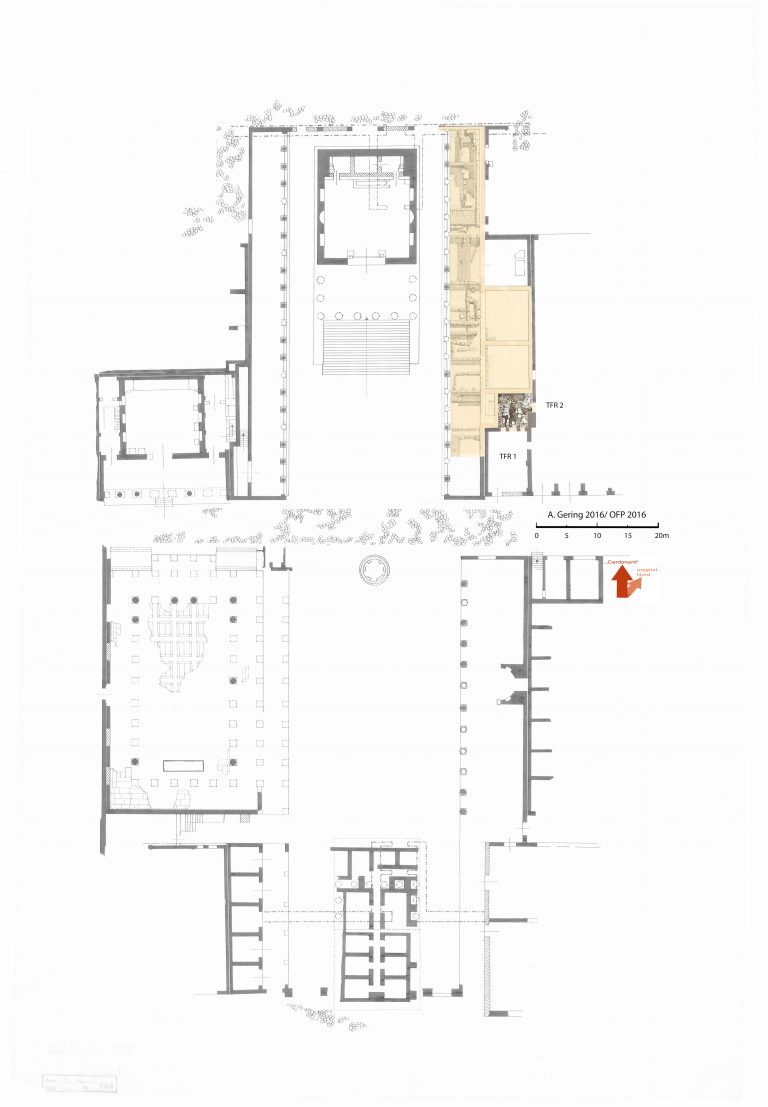Project Publications 2019
We are excited to have opened the Project Publications 2019 with a new publication on Late Archaic Ostia.
We are excited to have opened the Project Publications 2019 with a new publication on Late Archaic Ostia.
Dear all,
We had planned a campaign in Parco Archeologico di Ostia Antica from Monday March 9 until Friday March 20, where we would be working on our excavation material in the deposits as well as working in the archives and library. However, due to immediate health crisis, our campaign came to an untimely end. This happened in close cooperation with the authorities in Parco Archeologico di Ostia Antica, who are handling the situation with care and are doing all they can to maintain the site until they can open it for the public again.
We are hoping to be able to return to Ostia Antica soon, so that we can continue our work in the deposits and archives. For now, we are sending our thoughts to people, who are affected by this health crisis.
We are delighted to announce our new graduate college called the Ostia Graduiertenkolleg. It consists of six ph.d. projects supervised by Prof. Dr. Axel Gering, funded by the Stiftung Humboldt-University of Berlin (SHU) through a private donation. The six different topics are all the result of the work conducted by Ostia Forum Project since 2010 in the centre of Ostia.
The Graduiertenkolleg has its own website, www.ostiagraduiertenkolleg.com
The application-deadline for Theme 3 (Coins in Context) is extended
The Ostia-Forum-Project (OFP) – thanks to Stiftung-Humboldt-University (SHU) – offers a maximum three-year funding for a PhD-thesis focussed on the working-up of all coin-finds from former and coming OFP-campaigns in the centre of Ostia antica (Italy). It is funded by 1500€ monthly, per year you can additionally get up to 1000€ for travel expenses and after finishing your PhD, you could apply for up to 6000€ covering the printing-expenses of the PhD-thesis in the OFP series.
The material consists of more than 900 coins, found between 2010 and 2019 at the Forum in superficial cleaning-areas and excavation-trenches from mid Republican times to the end of Antiquity. A certain part of these coins has already been cleaned, conserved and analysed, but this is an ongoing process. The main part of these coins comes from stratified contexts in recent excavation-trenches. The unusual high number of more than 600 late-antique coins (3rd until 5th century AD) can be explained by their deposition, due to a common collapse-catastrophe in Ostia’s city-centre, which externally can be dated around the mid 5th century AD. The applicant should be interested and involved in the whole archaeological process from the finds-documentation consisting of a database, measuring, weighing, the manual cleaning and conservation until the final analysis and interpretation. The Ostian material is extraordinary in at least four regards:
a.) such a high number of late-antique coins has so far never been documented in the city-centre of Ostia,
b.) it could be paralleled with other recent coin-hoards from the periphery of Ostia, maybe underlining the theory of a major collapse catastrophe of the whole city,
c.) the latest coins could show which archaeological contexts and buildings were repaired even after this hypothetically widespread collapse of the 5th century AD, an extremely interesting approach to late antique urbanism through numismatic analysis,
d.) especially the nummi and the divided coins could give a unique insight into the circulation-process and the monetary-system of the widely unknown 5th century AD. Thus, this research can be fundamental for the history of economy of the 5th century AD, because the collapse-catastrophe has preserved the status quo of all coins being circulated at this time.
If you already have experience and/or a strong research interest in Roman coins with a focus on late antique coins of the 4th and 5th century AD and their impact on the local evolution of Ostia and the economic history in general, you are most welcome to apply for Theme 3 at OFP!
The application-deadline is extended until the 10th of November 2019.
On specific requests, it is also possible to get a personal deadline later for the full-application, if needed. Before you apply in any way, please contact the following mail axel.gering@web.de for further details.
For information about the doctoral process, see following link: Doctoral positions
The Ostia Forum Project is anchored in the Stiftung Humboldt-Universität. For more information about the Stiftung Humboldt-University, click here.
The selected candidates will be enrolled into the Winckelmann-Institut at the Humboldt Universität zu Berlin. For more information about the Winckelmann-Institut, click here.
We are very delighted to announce that we are offering six doctoral positions within the frame of Ostia Forum Project. The subjects range between architecture, GIS, amphorae and ceramics.
The application deadline is the 20th October 2019.
A thorough description of the positions can be found below:
The Ostia Forum Project is anchored in the Stiftung Humboldt-Universität. For more information about the Stiftung Humboldt-University, click here.
The selected candidates will be enrolled into the Winckelmann-Institut at the Humboldt Universität zu Berlin. For more information about the Winckelmann-Institut, click here.
The Ostia Forum Project will again conduct excavations in the room TFR_2. That is located just on the other side of northeastern portico and just south of the three rooms, MFR.


The purpose of this year is to continue the excavations, which we conducted in 2016 and 2017. You can read about these excavations here. The first year, 2016, we analysed a late antique marble pile, and after the removal of the marble pieces, we found an interesting pottery layer. The analysis of the marble pile was part of a larger sub-project, where we analysed all the marble piles in and around the Forum – both late antique as well as modern. You can read a little bit about this sub-project here and how this helps interpret the larger structures in the Forum. In 2017, we excavated in the attempt to construct the chronology of the room, TFR_2 and to see if there would be earlier structures. That was the case, and this will be the topic of this year, 2019.
We will be excavating from Friday the 16th of August until Friday the 27th of September. We will not be on site in the weekends, except the first Saturday, the 17th of August. We are always open to answer any questions you might have regarding our excavations and Ostia in general, so feel free to ask. Also on site, in case any of you will be in Ostia in that period.
The Director of Ostia-Forum-Project, Prof. Dr. Axel Gering, has published an article in the German news paper magazine Der Tagesspiegel.
The article is about the last ten years of activity in the Forum of Ostia conducted by the archaeologists from Humboldt-University and their many corporation partners. It also evolves around the aspects of how archaeology can help save world heritage.
You can find the article here!
Tuesday the 29. of January 2019 at 19 o’clock s.t. project director Prof. Dr. Axel Gering will have a public lecture titled
“Archäologie rettet Kulturerbe! 10 Jahre Ausgrabungen & Dokumentation durch das Ostia-Forum-Projekt und neue Perspektiven“.
Registration for the public lecture is not necessary – everybody is invited!
It is organised by the Stiftung Humboldt-Universität.
The lecture will be held in the main building of the Humboldt-University:
Raum 2091
Unter den Linden 6
10099 Berlin
For more information, check this link.
Three of our master students, Sophie Menge, Rocco Steputat and Ilya Poskonin, will present their master thesis work in the “Master and Ph.D. Colloquium“-series of the Winckelmann-Institut at the Humboldt-University of Berlin. The presentations will be held:
When: 24th (Sophie and Rocco) and 31st (Ilya) of January 2019 at 18:00 o’clock.
Where: Room 2095B, the Winckelmann Institute, Unter den Linden 6, 10099 Berlin.
Sophie Menge presents her results from the amphorae found in the different porticoes and rooms during our excavations.
Her presentation is titled:
“Amphorenfunde des Ostia Forum Projekts 2016-2018“
Rocco Steputat presents his results from the ceramics found in room TFR 2 located just behind the eastern portico next to the Capitolium. For some details of our excavations in this area, click here.
His presentation is titled:
“Funde und Kontexte – Die Objektdepots im Raum TFR 2 auf dem Forum von Ostia”
Ilya Poskonin presents his results about black-glazed pottery excavated in TFR 2 as well.
His presentation is titled:
“Die sogenannten “Schwarzfirnis”-Keramik des Ostia-Forum-Projekts 2016-2017: zur Datierung, Typologie sowie der Herstellung und Nutzung im regionalen Vergleich”
Here you have a link for a teaching video about 3D documentation techniques. It has been produced by Undine Lieberwirth and Julius Bussiliat in 2016 and is based on our excavations in the northwest portico, MFW, in 2011.
This video corresponds well with our aims and methodology.
You can read more about the excavation in 2011 as well as the bigger context in the Forum here.